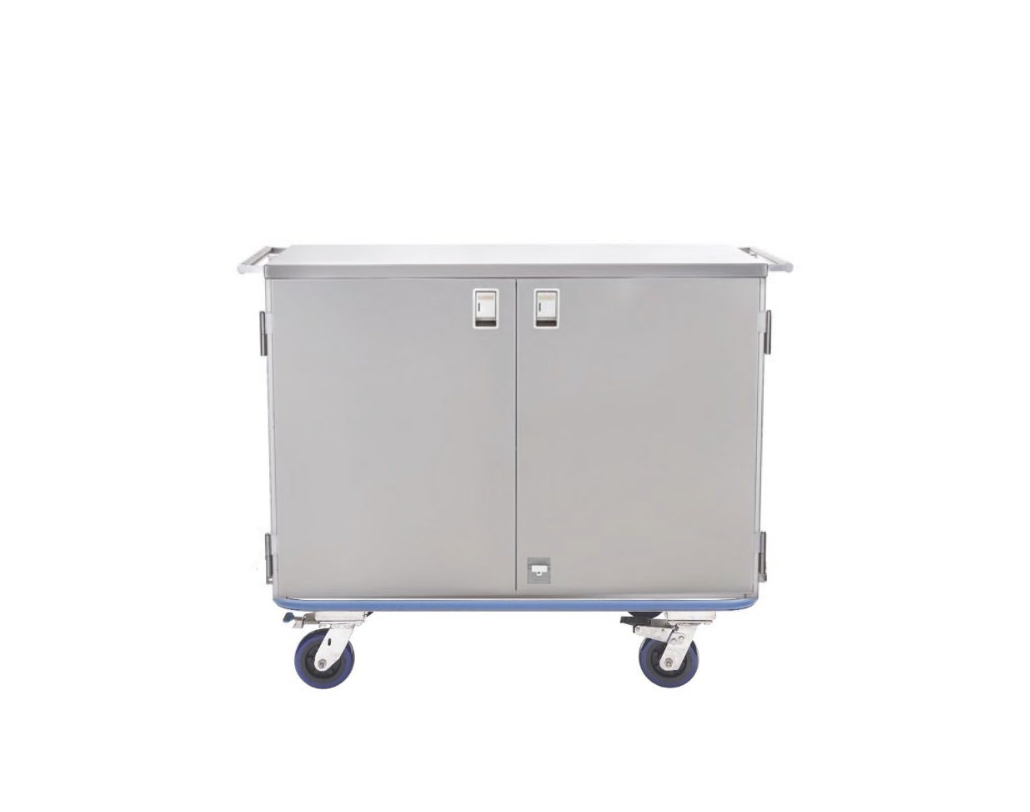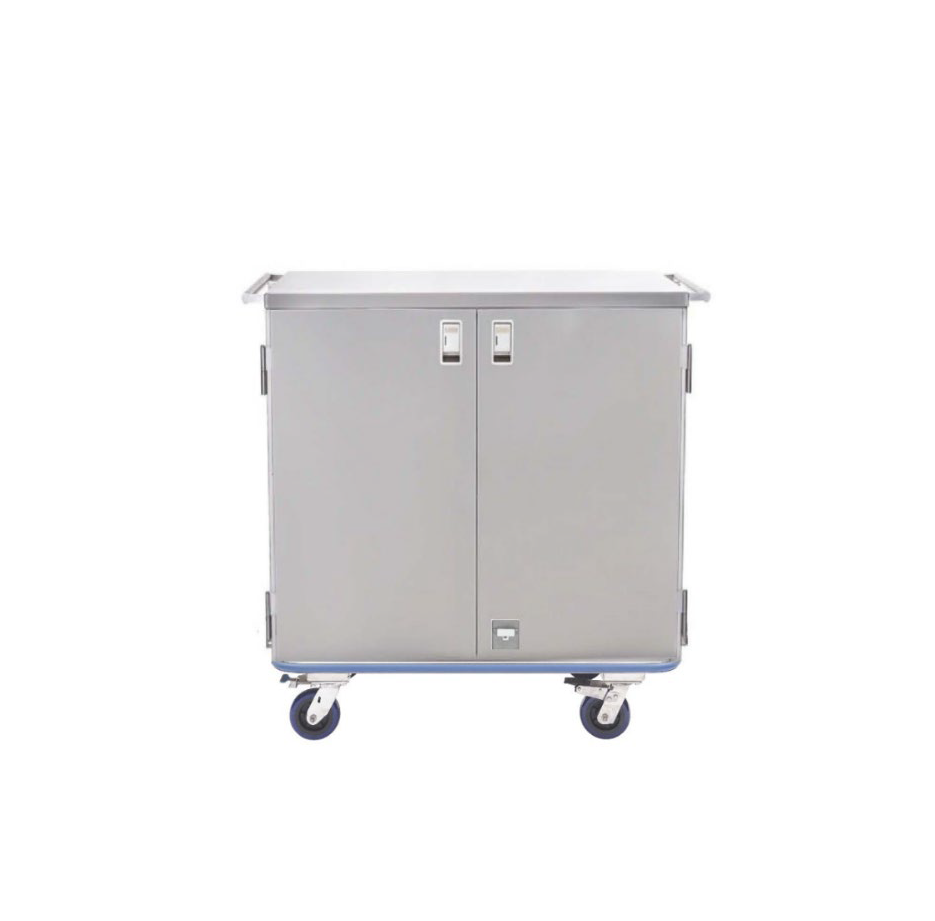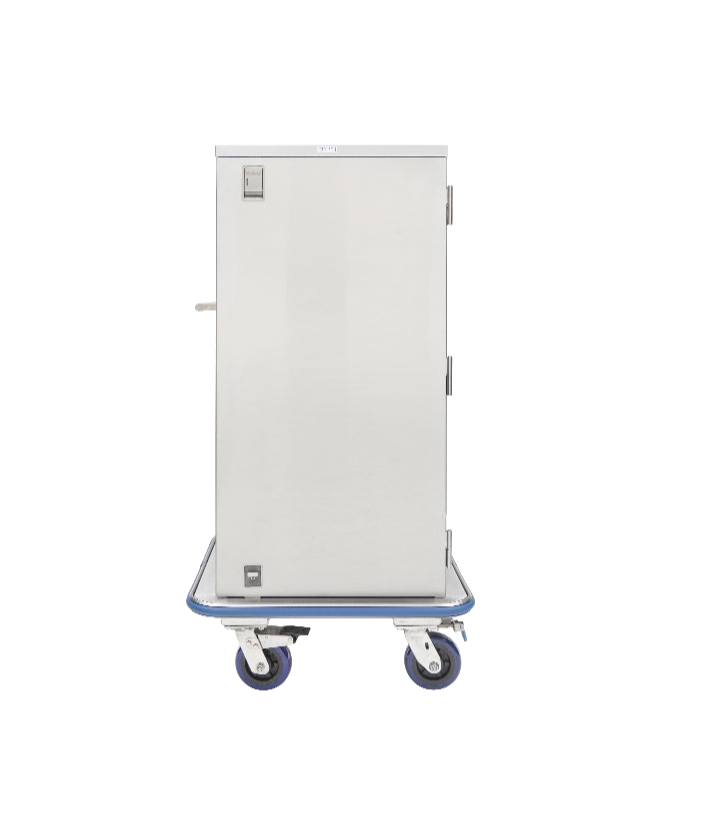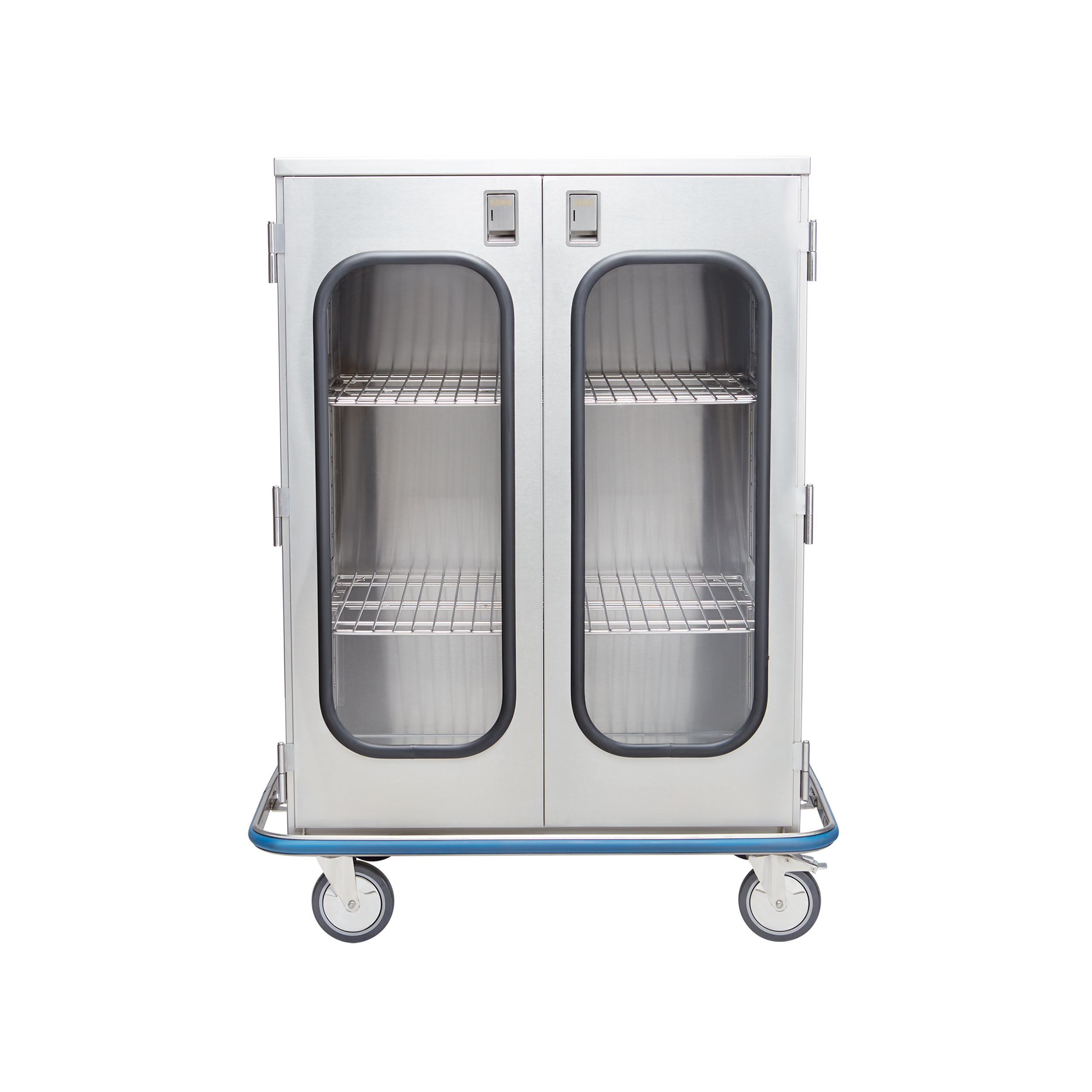Designing the Modern Day Case Cart
In the early 1970s, Blickman pioneered the design for the modern case cart.
Prior to the invention of the case cart, all instrumentation and supplies per procedure had to be assembled separately, which was an extraordinarily time-consuming process for OR surgical staff. Case carts were originally invented to efficiently store and transport all surgical instrumentation for one procedure in one cart. This helped reduce preparation time and increased efficiency in the operating room.
However, the original case cart design by another manufacturer was far from ideal, featuring two separate enclosures each supported by four casters hinged together to open and close like a clamshell, which was cumbersome for both transport and cleaning.
Blickman reconfigured the design as one integrated cart enclosed via secure doors. This design is now the standard design seen in today’s market.
With 130 years of inspiration to draw upon and repeatedly improve upon, to this day, Blickman continuously re-evaluates outdated designs in search of modern solutions.
Features of the Modern Day Case Cart
Whether you’re looking for a larger volume case cart that’s good for procedures requiring more supplies than standard procedures, such as neurosurgery or orthopedic surgery, or a compact case cart for labor and delivery or outpatient surgeries, we have the right size for you. From standard procedure sizes to maxi and mini, we also offer space-saving solutions for those of you who have needed more cart space without taking up more valuable OR floor space.
Click here to view our full product line of case carts, designed to suit your needs.













